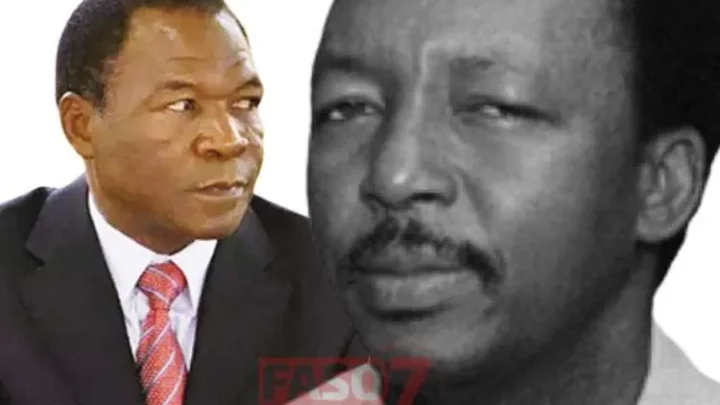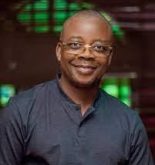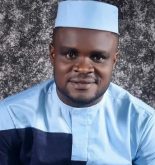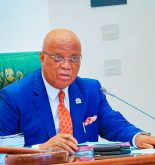By Anamati Inyang
EU’s court of injustice
The European Union’s Court of Justice has been criticised for obstructing the extradition of the suspected mastermind in the murder of investigative journalist Norbert Zongo and his colleagues.
In a statement on Wednesday, the Norbert Zongo Cell for Investigative Journalism in West Africa (CENOZO) described the court’s action, as “an unfortunate symbol of the persistent obstacles in the quest for justice.”
Zongo, a foremost Burkinabe investigative journalist was shot and burnt alongside three other persons in a Toyota Land Cruiser jeep in Sapouy, Ziro Province on December 13, 1998.
Police later identified the remains to be those of the journalist, his brother Yembi Ernest Zongo; Blaise Ilboudo, a colleague; and Abdouleye Ablassé Nikiema, who was Zongo’s driver. Zongo’s death had triggered a national crisis and violent protests within Burkina Faso and outrage across the world.
You can also read – CENOZO petitions President Akufo AddoGhana Chief Justice, others over ruling against undercover journalist, Anas
After 25 years of fruitless and frustrating search for justice, CENOZO said that the anniversary of the killing underscored the urgent need for national and international civil society groups to ensure that journalists are not silenced.
“This sad anniversary recalls the urgent need for national and international civil society organizations to work to ensure that the voices of journalists are never silenced, that their courageous quest for truth and transparency be protected and that justice be served, not only for Norbert Zongo, but for every journalist killed in the line of duty.
“Zongo’s struggle for truth, transparency and justice continues to inspire African journalists and all those fighting for the well-being of communities. That is why CENOZO honours his name by working, with the support of its partners, to promote investigative journalism, protect journalists and defend the right to information of populations.
“On this 13 December 2023, CENOZO calls for the solidarity of all organisations defending human rights and freedom of expression and of the press; to call on the European Union, the French and Burkinabe authorities to shed full light on the heinous crime of the murder of Norbert Zongo,” CENOZO stated.
Who was Norbert Zongo
Zongo, also known under the pen name Henri Segbo or H.S., was a Burkinabé investigative journalist and editor of the independent newspaper, L’Indépendant. He started out as a teacher in Ouagadougou’s Kadiogo Provence in 1971, while doubling as a writer. His first novel, Le Parachutage was a thinly disguised political critique of Togo’s President Gnassingbé Eyadema and was set in the post-colonial era.
You can also read – CENOZO calls on President Paul Biya to Stop Killings of Journalists in Cameroon
In the preface of the novel, Zongo mentioned about being arrested and beaten for writing for writing the book. His second work, “Rougbeinga” which was released two years after the first novel was also a political satire of leadership.
In 1991, Zongo, after working for the national daily paper Sidwaya, founded La Clef with Saturnin Ki. It was the first newspaper in Burkina Faso to openly criticize the government, with Zongo contributing under the pseudonym Henri Sebgo, the paper folded in 1993. That June, Zongo founded the weekly L’Indépendant, which primarily covered government corruption.
As an investigative journalist, he exposed many cases of extortion and impunity within the then government of President Blaise Compaoré. He was, however, assassinated after his newspaper began investigating the murder of a driver who had worked for the brother of Compaoré
In 1996, he began investigating a series of fraud and graft cases involving several mining and manufacturing companies with ties to top political officials and President Blaise Compaoré’s family. His resulting work severely embarrassed the government. The following year, Zongo directly criticized the Parliament’s decision to amend the constitution to allow Compaoré to seek a third term.
In December 1997, a suspicious disappearance and possible murder of David Ouedraogo, who happened to be the driver of François Compaoré who was President Blaise Campaoré’s brother, prompted Zongo to investigate. Ouedrago was tortured and killed for allegedly stealing large sums of money. Zongo reported the case and wrote small excerpts every week for his newspaper.
He began getting death threats and the government ignored them. His wife, Genevieve Zongo, confirmed that he was receiving death threats from 1997 to his death in 1998. She recounted how Zongo was followed by a car while on his motorbike apart from being approached to drop his investigation.
CENOZO’s call for justice echoes Zongo’s legacy, inspiring African journalists and advocates for truth, transparency, and justice. The organisation, supported by its partners, actively promotes investigative journalism, protects journalists, and defends the right to information.




